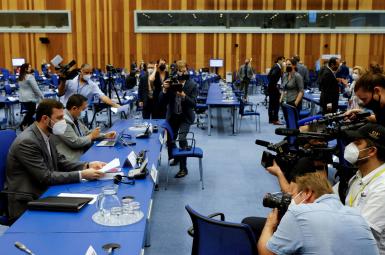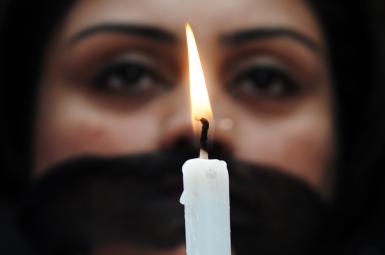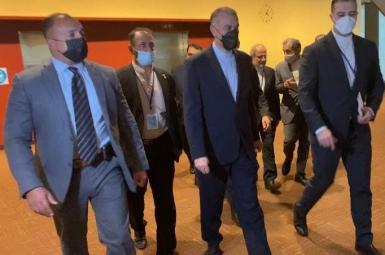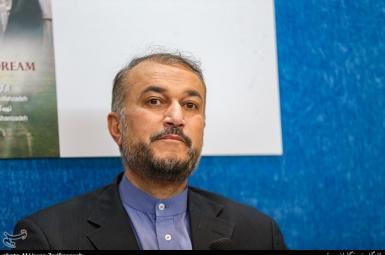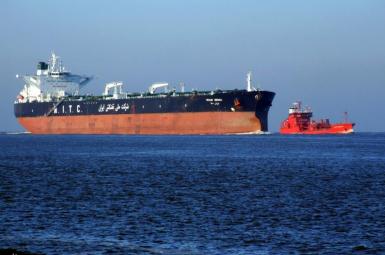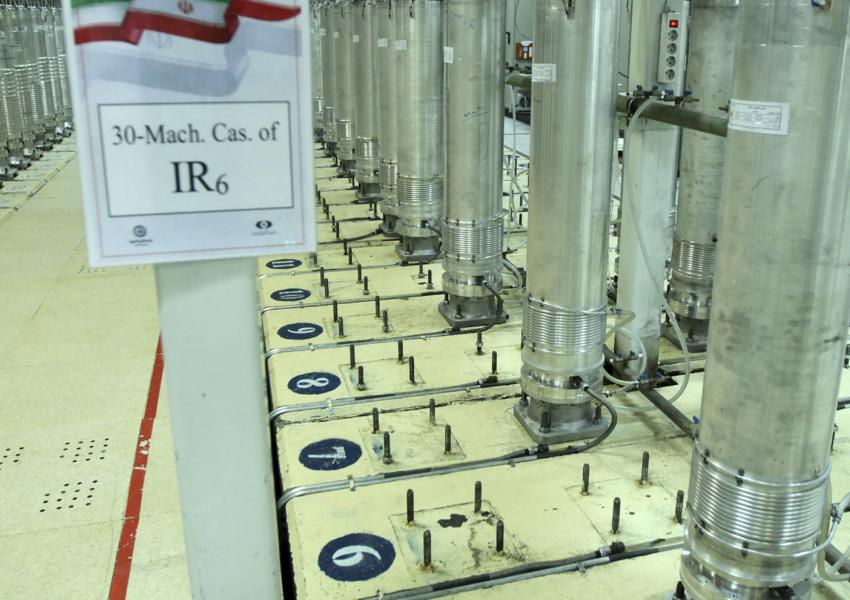
UN Atomic Energy And Iran At Loggerheads Over Monitoring Deal
The International Atomic Energy Agency (IAEA) in a statement Sunday said Iran was breaking an agreement by not allowing the agency to service equipment at the TESA Karaj Complex, a centrifuge component manufacturing workshop in north-central Alborz province.
The move can be interpreted as a toughening of Iran’s position in its dealings with the international community over its nuclear program.
The UN watchdog had criticized Iran earlier this month for having blocked proper monitoring at its nuclear facilities since February demanding the lifting of US sanctions. To avoid a negative resolution by the IAEA governing board, Iran invited IAEA head Rafael Grossi to visit Tehran and a new deal was struck on September 12 to allow for servicing of surveillance cameras.
In a series of tweets Sunday, Kazem Gharibabadi, Iran's ambassador to international organizations in Vienna, responded to the IAEA by declaring that the workshop had been excluded from the September 12 arrangement reached in Tehran by IAEA head Rafael Mariano Grossi as investigations were continuing into a drone attack on the facility in June.
Gharibabadi said the phrase "identified equipment" had for this reason been used in the September 12 agreement, under which the agency would service monitoring equipment at other sites.
"Any decision taken by Iran on monitoring equipment is only based on political rather than legal considerations and the Agency cannot and should not consider it as one of its entitlements," the Iranian envoy said in another tweet.
Gharibabadi pointed out that the IAEA had failed to condemn various attacks on Iran's nuclear facilities that have been widely attributed to Israel. One of the Karaj buildings, belonging to the Atomic Energy Organization of Iran (AEOI), was damaged in the June 23 drone attack, with the New York Times reporting it was “one of Iran’s main manufacturing centers” for centrifuges used to enrich uranium at the Fordow and Natanz sites.
Result-oriented talks
Iranian Foreign Minister Hossein Amir-Abdollahian has in the past few days stressed that Iran is ready to continue Vienna talks over reviving its 2015 nuclear agreement with world powers on the basis they are "result-oriented". His remarks echo the address of President Ebrahim Raisi (Raeesi) to the annual United Nations General Assembly meeting (UNGA) September 21 when he said Iran wanted "useful talks" leading to "the lifting of all oppressive [US] sanctions."
Former US President Donald Trump introduced ‘maximum pressure’ sanctions on Iran in 2018 when withdrawing the US from the 2015 nuclear deal – the JCPOA, Joint Comprehensive Plan of Action. President Joe Biden has continued these sanctions, apparently to force Iranian concessions, and one of his senior officials said Friday Washington expected Iran’s ballistic missile program to be part of the talks.
In a commentary Sunday headlined "Deciphering Amir-Abdollahian's Recent Remarks," the conservative Alef news website said reviving the JCPOA would not be “smooth.” The commentary noted that by criticizing the Biden administration for adding new sanctions to ‘maximum pressure,’ Amir-Abdollahian had drawn red lines that left the US to "chose between imposing new sanctions and returning to the negotiation table."
The talks in Vienna − which formally involve the remaining JCPOA signatories China, France, Germany, Iran, Russia, and the United Kingdom, and indirectly the US – were suspended in June pending the Iranian presidential elections and subsequent transition. Foreign Ministry Spokesman Saeed Khatibzadeh said Friday it was high time for the US to "to wake up to new reality.”

